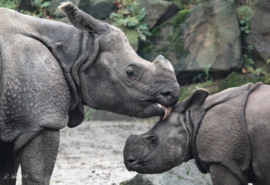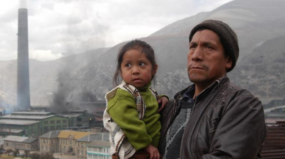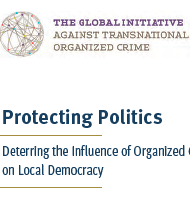The recent murders of environmental defenders in Cambodia highlight how international interventions are failing the front-line actors who risk their lives protecting forests from illicit logging in South East Asia.
The murders of three Cambodian environmental defenders in January 2018 hardly made domestic, let alone international, headlines. Sok Vathana, a military police officer, Toeurn Soknay, a ranger, and Thol Khna, from the Wildlife Conservation Society (a US-based NGO) were the latest fatalities in the fight to protect Cambodia’s ancient forests. Their deaths were not isolated incidents: use of violence against environmental defenders has become a regular global phenomenon – a UNODC report on illegal logging in Vietnam recorded 170 forest-protection officers being injured over the course of three years.
At the same time, illicit logging, like other forms of environmental crime, has become complicated and organized. And its repercussions are severe. Environmental defenders are now pitted against what have become well-resourced and well-connected illicit networks.
Although there is increasing momentum at the international level to prioritize environmental issues, action has largely neglected to protect those on the front line. Rhetoric and import restrictions are not enough. Action targeting transnational criminal networks, known to include corrupt government officials and international corporations, is needed. If efforts are not undertaken to combat the violence and corruption that enable illicit logging, it will continue unabated, resulting not only in the loss of valuable natural resources, but also the lives of environmental defenders who protect our most vulnerable forests.
The illegal timber trade in the Asia Pacific region is estimated to be worth US$11 billion a year – equivalent to about 30 per cent of the total regional trade in wood products. Illicit logging in the region is widespread, the major regional producers being Indonesia, Malaysia, Laos, Myanmar, Cambodia, Papua New Guinea and the Solomon Islands. Indonesia is thought to be the single largest deforester in the world, losing an estimated 1.6 to 2.8 million hectares to illegal logging and land conversion annually (a rate that is equivalent to between four and seven football fields each minute). Most of this destruction occurs in Sumatra and Kalimantan, the only habitat in the world where tigers, orang-utans, elephants and rhinoceroses live together.
In Cambodia, large-scale illegal logging has been identified in the northern provinces of Ratanakiri and Mondulkiri, abundant with rosewood and easily accessible to trucks moving timber across the border into Vietnam. These provinces are also home to the highest density of indigenous communities in Cambodia, who depend on the forest for their livelihood. Communities trying to protect the forests face corrupt officials, including police and military, and are threatened with violence and death.
Illegal timber trade: Regional drivers and enablers
China, by far the greatest global importer of illicit timber, has an insatiable demand for timber – including Cambodia’s prized rosewood timber used for luxury furniture – that underpins the violence against those trying to protect ancestral forests. The exponential increase in Chinese timber imports over the last two decades is the result of a combination of the country emerging as a major wood-processing hub, its growing domestic market and its ban on domestic logging in huge expanses of its own natural forests. China’s State Forestry Administration has explicitly resisted calls for legislation prohibiting illegal trade into and within the country despite engagement with the international community.
Vietnam also plays a big role in enabling the Cambodian illicit timber trade. As both an importer and exporter, Vietnam is an ideal place to launder illicit timber. Timber is smuggled across the northern border of Cambodia into Vietnam, then onto destination markets. Although Cambodia officially prohibits export of logs, Vietnamese provincial authorities issue import quotas for Cambodian timber to Vietnamese companies. Some then subcontract the quotas to smugglers. The same scenario is repeated for illicit timber from Laos.
Protection economies: Webs of violence and corruption
Allegations of bribery and corruption facilitating illegal logging are abundant. In Indonesia the military have been implicated in enabling illegal logging by providing protection services to offenders in exchange for cash. In Cambodia, military officials are regularly accused of engaging in, and heavily profiting from, illicit logging. For example, the Srekor Commune police chief was reportedly found in possession of 446 pieces of highly valued logs on his property in 2017. Likewise, Vietnamese officials have been implicated in illicit logging, receiving millions of dollars in bribes from Vietnamese timber traders as part of a cross-border ‘conspiracy’.
Public officials have also been complicit in the use of violence against those defending the forests. The primary suspects in the January 2018 murders of three environmental defenders in Cambodia include border police and three military officers. Just two days after the killings, forest defenders who had caught soldiers in possession of illegally logged timber in Mondulkiri Province and the Ratanaka Rukha community forest were threatened by military officers with an axe and told they would be set on fire.
One of the murder victims had previously had his home burnt down in a similar incident in 2015; and Chut Wutty, the director of Natural Resource Protection Group, an environmental watchdog, was gunned down in 2012 by military police while investigating illegal logging. Additionally, military have threatened indigenous forest communities in Banteay Meanchey Province for trying to prevent the military from bringing in illegal logging equipment. Another NGO, Mother Nature, was disbanded in February 2018 after environmental defenders were threatened and jailed for taking photos of illegal sand dredging by a firm linked to the ruling political party.
An analysis of illicit timber shipments to the European Union demonstrates how international efforts are falling flat. The EU is estimated to import about 20 per cent of the illegally felled timber in the world. Meanwhile, a billion euros’ worth of legally logged timber was thought to be exported to the EU during the first year of a licit logging assurance scheme from Indonesia. But, although the EU has put in regulations in an effort to import only legal timber, illegal timber is easily sold to the EU under falsified invoices, masked as legal products. These include EU imports of timber from Vietnam that have been illegally sourced from neighbouring Cambodia.
Investigations into illegal logging frequently implicate internationally publicly listed companies. In Cambodia, for example, logging tycoon Try Pheap and the 15 companies he and his wife own have been linked to political clientelism, including allegations of an opaque US$1million pre-election payment to Prime Minister Hun Sen and the Cambodian People’s Party. This raises questions around supply chain management and to what degree powerful political figures, together with corporations, are complicit in environmental crime.
Environmental defenders face a David and Goliath battle to protect some of the most valuable forests remaining in South East Asia. When soldiers and police chiefs are actively involved in environmental crimes like the illicit logging trade, environmental defenders are up against enormous odds, defending the forests with their lives, quite literally.
Import regulations might result in political point-scoring, but do little to protect those on the ground. What is really needed are interventions that break the links that connect illegal logging, corruption, criminality and violence. Responses must be crime-sensitive and crime-proof: they must seek not only to increase the integrity of supply chains, but also to bring an end to the impunity of those engaged in illegal logging, especially powerful government and corporate actors.
As consumers and the broader community have become more aware of blood diamonds and black gold, we should likewise shine the spotlight on tainted timber, as it is costing environmental defenders their lives.
Photo copyright © 1998-2016, RFA. Used with the permission of Radio Free Asia, 2025 M St. NW, Suite 300, Washington DC 20036. https://www.rfa.org.
Los recientes asesinatos de defensores ambientales en Camboya ponen en relieve el grado en el que las intervenciones internacionales les están fallando a los actores que se encuentran en la primera línea, a los que ponen en riesgo sus vidas para proteger los bosques de la tala ilegal en el sudeste asiático.
Los homicidios de tres ambientalistas camboyanos en enero de 2018 casi no fueron noticia en los medios de comunicación locales, menos aún en los internacionales. Sok Vathana, oficial de la policía militar; Toeurn Soknay, guardabosques; y Thol Khna, miembro de la Wildlife Conservation Society (una ONG para la conservación de la vida silvestre con sede en los EEUU) fueron las últimas víctimas en la lucha para proteger los bosques ancestrales de Camboya. No se trató de incidentes aislados: el uso de la violencia contra los defensores del medio ambiente se ha vuelto un fenómeno mundial frecuente – un informe de la UNODC sobre la tala ilegal en Vietnam documentó los ataques a 170 oficiales de protección forestal en el transcurso de tres años.
Al mismo tiempo, la tala ilícita, al igual que otras formas de delincuencia ambiental, se ha vuelto más compleja y organizada, con graves repercusiones. Los ambientalistas ahora están enfrentados a redes ilícitas que cuentan con muchos recursos y conexiones.
Aunque hay una tendencia creciente a nivel internacional de priorizar los asuntos ambientales, las acciones que se han tomado han desatendido en gran medida a aquellos que están en la primera línea. Las restricciones retóricas y sobre las importaciones no son suficientes. Es preciso tomar acciones que tengan como objetivo las redes delictivas transnacionales, en las cuales se sabe que están implicados funcionarios de gobierno corruptos y empresas internacionales. De no mediar esfuerzos para combatir la violencia y la corrupción que dan lugar a la tala ilegal, esta no cesará y resultará en la pérdida no sólo de recursos naturales valiosos, sino también de las vidas de los defensores ambientales que protegen nuestros bosques más vulnerables.
El valor del comercio ilegal de madera en la región del Pacífico Asiático está estimado en US$1 billón anual – equivalente a cerca del 30 por ciento del comercio regional total de productos derivados de la madera. La tala ilícita en la región está generalizada, siendo Indonesia, Malasia, Laos, Birmania, Camboya, Papúa Nueva Guinea y las Islas Salomón los mayores productores a nivel regional. Se cree que Indonesia es el mayor deforestador del mundo, con pérdidas estimadas entre 1,6 y 2,8 millones de hectáreas anuales debido a la tala ilegal y a la transformación del terreno (una tasa que equivale a entre cuatro y siete canchas de futbol por minuto). La mayor parte de la destrucción se da en Sumatra y en la Isla de Borneo, el único hábitat en el mundo en donde coexisten tigres, orangutanes, elefantes y rinocerontes.
En Camboya, en las provincias de Ratanakiri y Mondulkiri, al norte del país, se han identificado operaciones ilegales de tala a gran escala. Se trata de zonas de palisandros de fácil acceso para camiones que transportan madera a través de la frontera hacia Vietnam. Estas provincias también albergan la mayor densidad de comunidades indígenas en Camboya, las cuales dependen de la selva para su subsistencia. Las comunidades que intentan proteger sus bosques se enfrentan a funcionarios corruptos, incluyendo a la policía y a las fuerzas militares, y reciben amenazas de violencia y de muerte.
Comercio ilegal de madera: los impulsores y facilitadores regionales
China, lejos la mayor importadora de madera ilícita a nivel mundial, tiene una demanda insaciable de madera – incluyendo de la preciada madera de palisandro utilizada para muebles de lujo – que apuntala la violencia contra aquellos que intentan proteger bosques ancestrales. El crecimiento exponencial en las importaciones de madera en China durante las últimas dos décadas es producto de una combinación de factores: de que el país está emergiendo como un centro importante para el procesamiento de madera, de su creciente mercado interno, y de la prohibición a la tala en grandes extensiones de sus propias selvas naturales. La Administración Forestal Nacional de China se ha negado explícitamente a los llamados para adoptar legislaciones que prohiban el comercio ilícito hacia y dentro del país a pesar del compromiso con la comunidad internacional.
Vietnam también juega un papel considerable en el mercado ilícito de madera en Camboya. Por ser tanto importador como exportador, Vietnam es un sitio ideal para blanquear madera ilícita. La madera ingresa ilegalmente a través de la frontera norte de Camboya, y luego a los mercados de destino. Aunque Camboya oficialmente prohibe la exportación de madera, las autoridades provinciales vietnamitas emiten cupos de importación de madera camboyana a empresas vietnamitas. Luego, algunas subcontratan esos cupos a contrabandistas. El mismo escenario se repite para la madera ilícita oriunda de Laos.
Economías de protección: redes de violencia y corrupción
Abundan las alegaciones de casos de sobornos y corrupción que permiten que se desarrolle la tala ilegal. En Indonesia, las fuerzas militares han estado implicadas en la tala ilegal ofreciendo servicios de protección a los delincuentes a cambio de pagos en efectivo. En Camboya, los oficiales de la fuerza militar han sido acusados muchas veces de participar y de beneficiarse enormemente de la tala ilícita. Hay informes que señalan que en 2017, en la propiedad del jefe de policías de la Comuna Srekor, fueron hallados 446 troncos de madera de alto valor. Asimismo, también han estado implicados funcionarios vietnamitas, quienes recibían millones de dólares en coimas de comerciantes madereros vietnamitas como parte de una “conspiración” transfronteriza.
También se sabe de la existencia de funcionarios públicos que han sido cómplices en el uso de la violencia contra los defensores de los bosques. Entre los principales sospechosos de los homicidios de los tres ambientalistas en Camboya en enero de 2018, están la policía de frontera y tres oficiales de la fuerza militar. Solo dos días después de los homicidios, los defensores de los bosques que habían encontrado a soldados en posesión de madera que había sido talada ilegalmente en la provincia de Mondulkiri y en el bosque comunitario Ratanaka Rukha recibieron amenazas con un hacha por parte de militares, quienes les dijeron que les prenderían fuego.
A una de las víctimas de los homicidios ya le habían incendiado su casa en un incidente similar en 2015, y Chut Wutty, director del Grupo de Protección de los Recursos Naturales, un grupo de vigilancia ambiental, recibió disparos de la policía militar en 2012 mientras investigaba la tala ilegal. Además, los militares han amenazado a comunidades indígenas que habitan los bosques en la provincia de Banteay Meanchey por intentar evitar el ingreso de equipamiento para talar ilegalmente. Otra ONG, Madre Naturaleza, fue disuelta en febrero de 2018 luego de que ambientalistas fueran amenazados y encarcelados por tomar fotografías del dragado ilegal de arena que realizaba una firma vinculada al partido político gobernante.
Al hacer un análisis de los cargamentos de madera de origen ilegal hacia la Unión Europea, puede verse el grado en el que están fracasando los esfuerzos internacionales. Se estima que la UE importa aproximadamente el 20 por ciento de toda la madera ilícita en el mundo. Entretanto, se cree que la UE importó de Indonesia un volumen de madera lícita valuado en un billón de euros durante el primer año del programa de garantía de legalidad de la madera. Sin embargo, aunque la UE ha implementado regulaciones en un intento de importar sólo madera de origen lícito, la madera ilícita encuentra su camino fácilmente hacia la UE con facturas apócrifas, enmascarada como producto legal. Aquí se incluyen importaciones en la UE de madera proveniente de Vietnam que ha sido obtenida ilegalmente en su vecina Camboya.
Las investigaciones sobre la tala ilegal con frecuencia involucran a empresas internacionales que cotizan en bolsa. En Camboya, por ejemplo, el magnate maderero Try Pheap y las 15 empresas que él y su esposa poseen han estado vinculadas a clientelismo político, incluyendo alegaciones sobre un pago poco claro al Primer Ministro Hun Sen y al Partido Popular de Camboya de US$ 1 millón previo a las elecciones. Esto genera preguntas en torno a la gestión de la cadena de suministro y a qué grado las figuras políticas de poder, junto con las grandes empresas, son cómplices de la delincuencia ambiental.
Los ambientalistas se enfrentan una batalla como la de David y Goliath para proteger algunos de los bosques más valiosos que quedan en el sudeste asiático. Cuando los militares y los jefes de policía son partícipes activos en delitos ambientales, como en el caso del comercio ilícito de madera, los defensores ambientales están frente a grandes desventajas defendiendo los bosques, literalmente, con sus propias vidas.
Las regulaciones sobre las importaciones pueden dar puntaje político, pero hacen my poco para proteger a aquellos en el terreno. Lo que realmente se necesita son intervenciones que rompan los lazos que unen la tala ilegal, la corrupción, la criminalidad y la violencia. Las respuestas deben ser sensibles a la delincuencia y estar blindadas contra ella: no sólo deben procurar elevar la integridad en las cadenas de suministro, sino también poner punto final a la impunidad de aquellos involucrados en la tala ilegal, especialmente a los actores poderosos del gobierno y del mundo empresarial.
Conforme los consumidores y la comunidad en general han tomado más conciencia de los diamantes de sangre y del oro negro, del mismo modo deberíamos poner el foco en la madera sucia, puesto que le está costando la vida a los defensores del medio ambiente.
Fotografía: Todos los derechos reservados © 1998-2016, RFA. Utilizada con el permiso de Radio Free Asia, 2025 M St. NW, Suite 300, Washington DC 20036. https://www.rfa.org.



